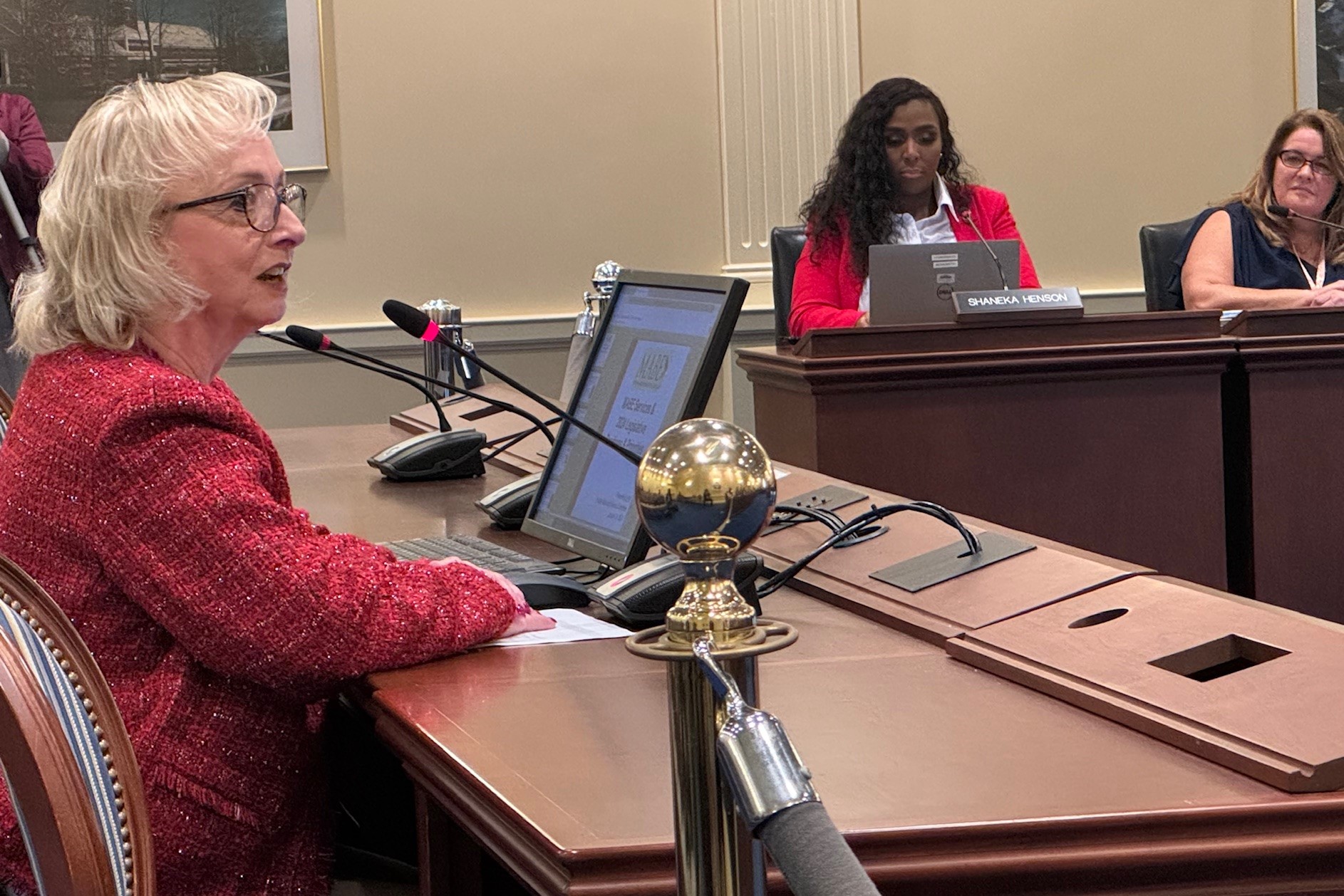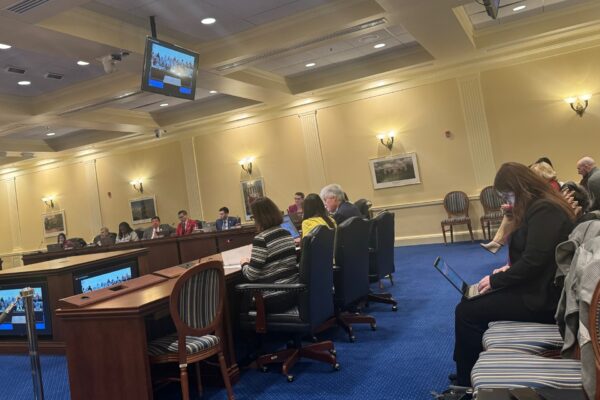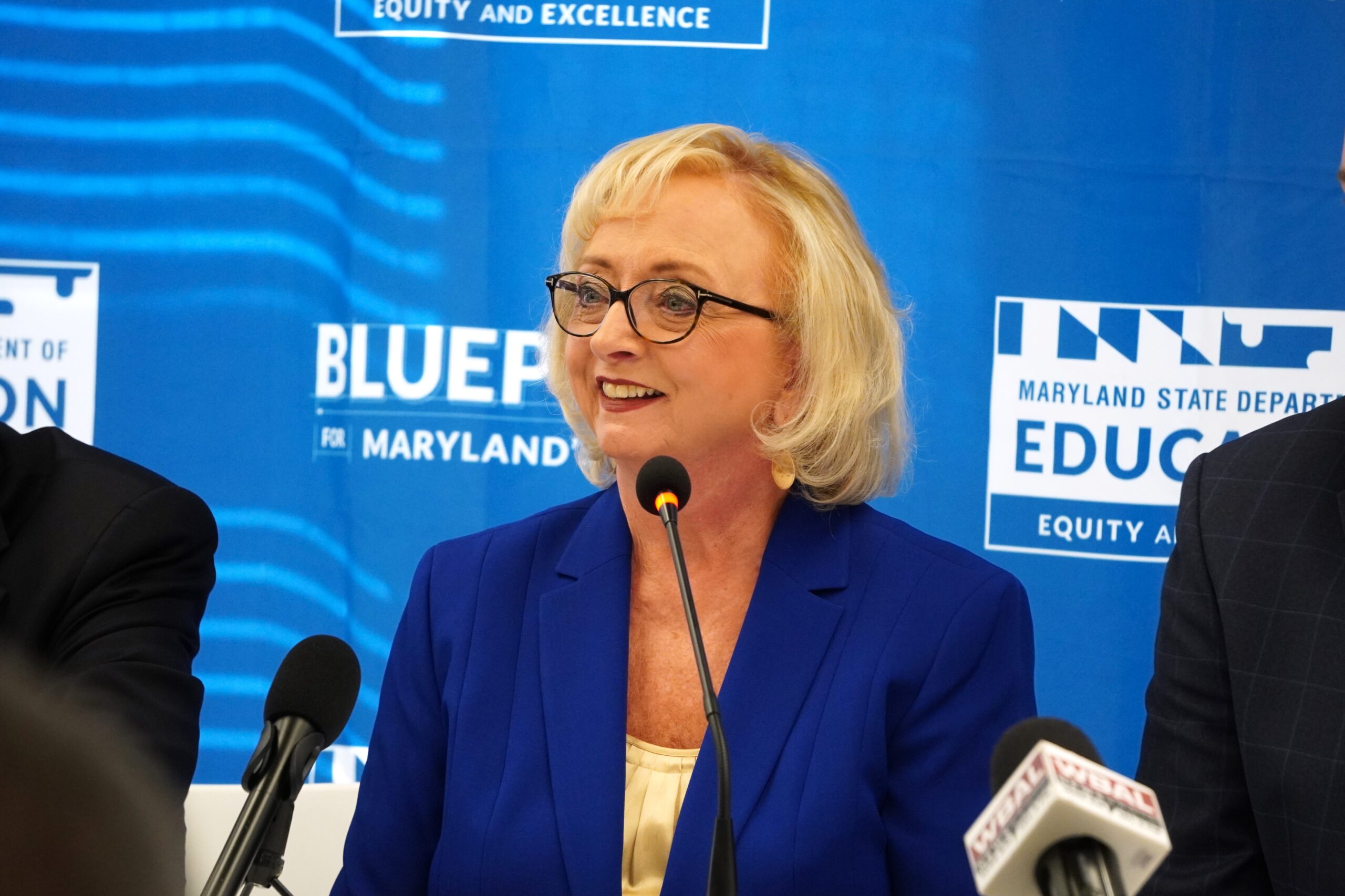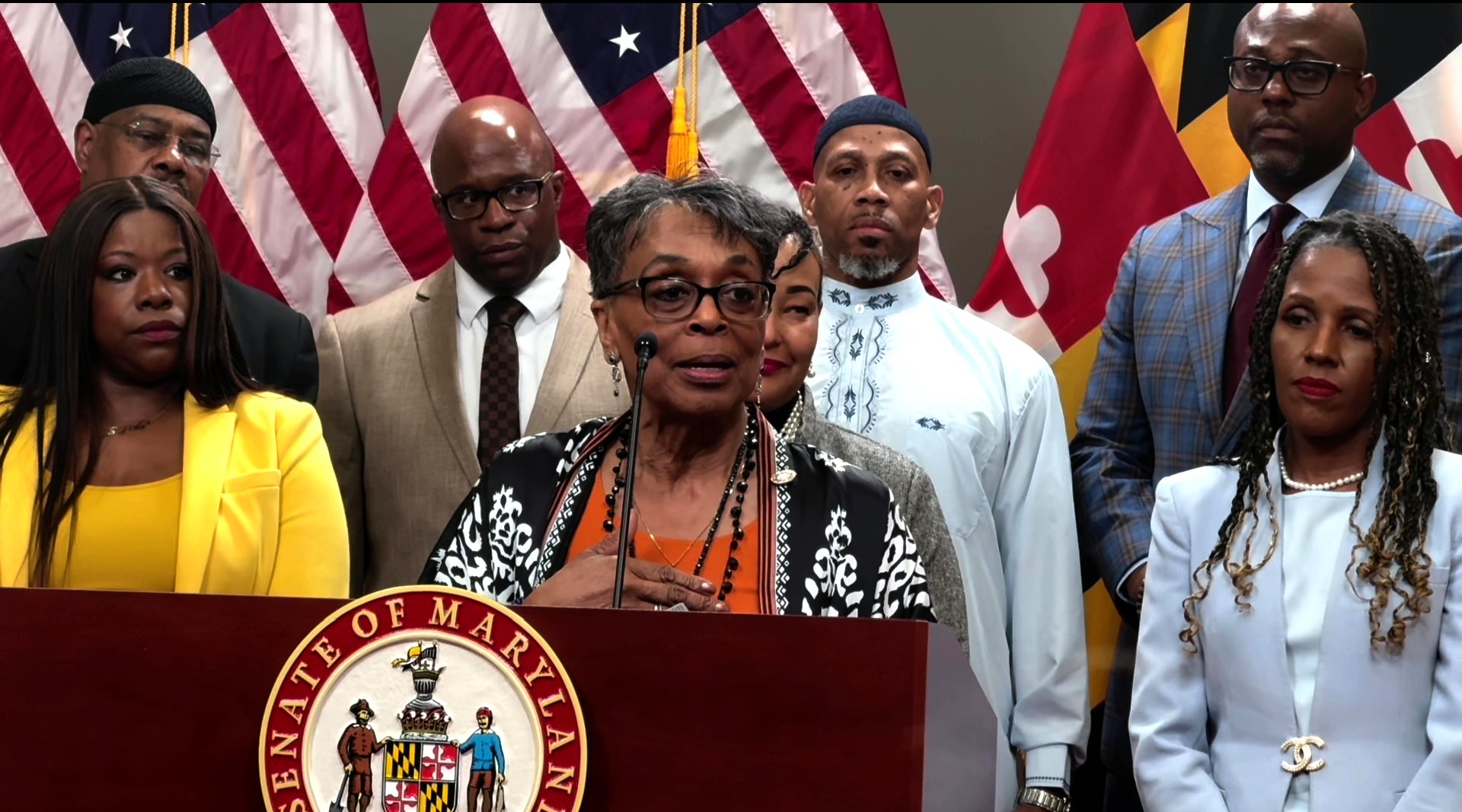Interim superintendent visits House panel, education officials lay out legislative priorities

Some of Maryland’s top education officials converged in Annapolis on Wednesday to give the House Ways and Means Committee one message: Make sure public education remains fully funded.
The representatives from the Maryland State Department of Education, Maryland Association of Boards of Education and Public School Superintendents’ Association of Maryland also asked lawmakers to continue to support the Blueprint for Maryland’s Future education reform plan.
Before legislative proposals were presented, interim State Superintendent of Schools Carey Wright told the committee about the state’s ambitious plan to incorporate the so-called science of reading method into all 24 school systems starting in the 2024-25 school year.
The state Board of Education unanimously approved a resolution Tuesday to push for an “aspirational target” for Maryland to rank among the top 10 states in the nation for fourth- and eighth-grade reading proficiency on the National Assessment of Educational Progress (NAEP) exams, also known as the Nation’s Report Card. The goal is to reach this achievement by 2027.
According to the resolution, the latest NAEP results from 2022 showed about 31% of fourth graders and 32% of eighth graders are reading at a proficient level in Maryland.
In 2015, the state ranked 24th in the nation on the NAEP fourth-grade assessment and has fallen to the current rank of 40th.
During that same time frame, the state ranked 18th in eighth grade achievement, but slid down to 25th in 2022.
Wright is familiar with the science of reading program, which focuses on teaching students based on phonics instructions sound, comprehension and vocabulary.
Wright used the method when she was schools superintendent in Mississippi, one of the nation’s poorest states, where reading proficiency now exceeds Maryland’s, one of the richest states.
To help Maryland implement the science of reading instruction, Tenette Smith will join the Maryland State Department of Education to lead literacy instruction. According to the department, Smith led elementary reading for the Mississippi Department of Education when Wright served as superintendent in 2021.
The majority of Maryland school systems have begun to integrate the science of reading into their curriculum, but all schools must be aligned with that method of literacy instruction next school year.
Maryland educators taught what’s known as the balanced literacy method through the Ready to Read Act enacted in 2019 and implemented in the 2020-21 school year. Although it offered educators a comprehensive approach to literacy instruction for students, local school officials were allowed to choose their own curriculum.
Wright said a literacy plan will be released later this year that will include input from superintendents, educators and other stakeholders.
“This is not a ‘gotcha’ moment,” Wright said to the committee. “This is really a way to provide feedback to our schools and our teachers and our leaders about what may need to change in the classroom to ensure that our children are learning to read.”
Wright summarized other initiatives underway or in the planning process at her agency, including literacy expert teams visiting schools, creating strategies to boost math test scores and establishing a joint committee with representatives from the Maryland Higher Education Commission and University System of Maryland to assess educator programs.
Several members of the House committee gleefully welcomed Wright, who became the state’s interim public schools leader in October.
“I am so excited that you’re here and everything that you have been saying…is speaking my language, so I am very excited to hear all the initiatives that you’ve talked about,” said Del. April Miller (R-Frederick), a former school board member in that county for eight years.
Del. Eric Ebersole (D-Baltimore County), a former teacher, called Wright the “Wizard of Mississippi” for her literacy work.
‘Unfunded mandates’
After Wright’s presentation, representatives with the state Boards of Education, also known as MABE, and the Public School Superintendents’ Association laid out their legislative priorities.

Representatives with the Maryland Association of Boards of Education testify before the House Ways and Means Committee on Jan. 24, 2024. Photo by William J. Ford.
A few proposals that both groups highlighted are more funding and resources to expand early childhood education that’s required under the Blueprint plan. They also want to amend state law for the Blueprint to ensure local funding keeps pace with inflation and to provide permanent funding for Blueprint coordinators.
The state Boards of Education asked legislators to amend state law to allocate $150,000 annually for each of the 24 school systems to fund Blueprint coordinators’ salaries, benefits and “administrative supports.” The estimated cost that would be shared between state and local governments: $3.6 million.
Michelle Corkadel, president of MABE and an Anne Arundel County school board member, said after the briefing that some local school systems cannot afford to fund that position.
“It’s basically a conversation about unfunded mandates [and] that unfunded mandates have consequences,” she said. “I would say if accountability, successful implementation and smooth coordination and transition are of your mindset, then helping to fund it should be the natural secondary course of action.”
Myriam Rogers with Baltimore County Public Schools and Maria Navarro with Charles County Public Schools spoke on behalf of the school superintendents.
One legislative priority was to support any program that promotes teacher recruitment and retention such as the “Grow Your Own” program, which is designed to expand the local pipeline for teachers and school administrators.
“We want people to come into teaching and stay in the field of education,” said Navarro, the legislative committee chair for the superintendent’s association.
The association also seeks an updated cost analysis of the Blueprint plan “in a post-Covid world” done by the state Department of Legislative Services. Some of the analysis, according to association documents, should include transportation, health and food services and building maintenance.
Rogers, who became superintendent last year in Baltimore County, said the jurisdiction is the state’s third largest school system but has some of the state’s oldest buildings.
“With that comes some overcrowding and some capital needs to meet the needs of our students,” she said.




 Creative Commons Attribution
Creative Commons Attribution